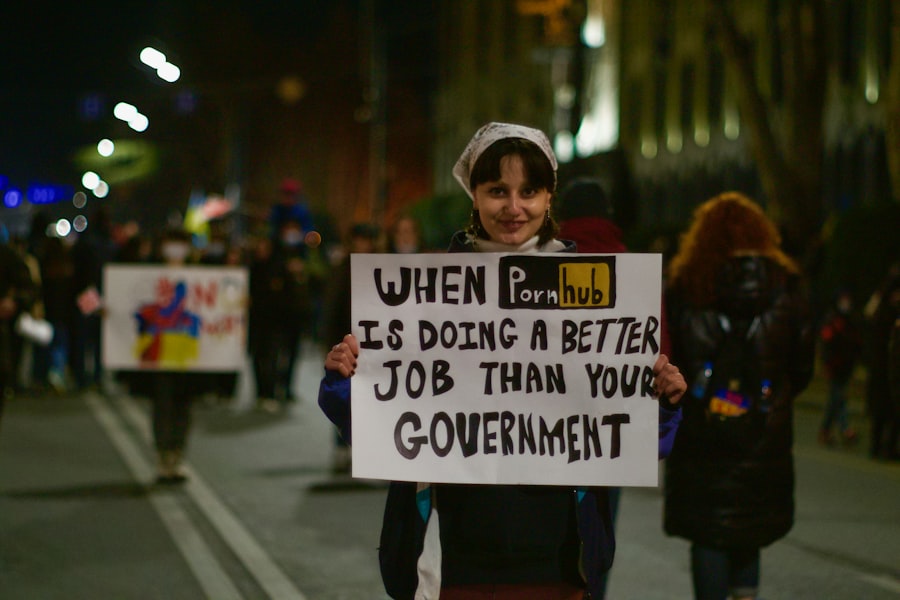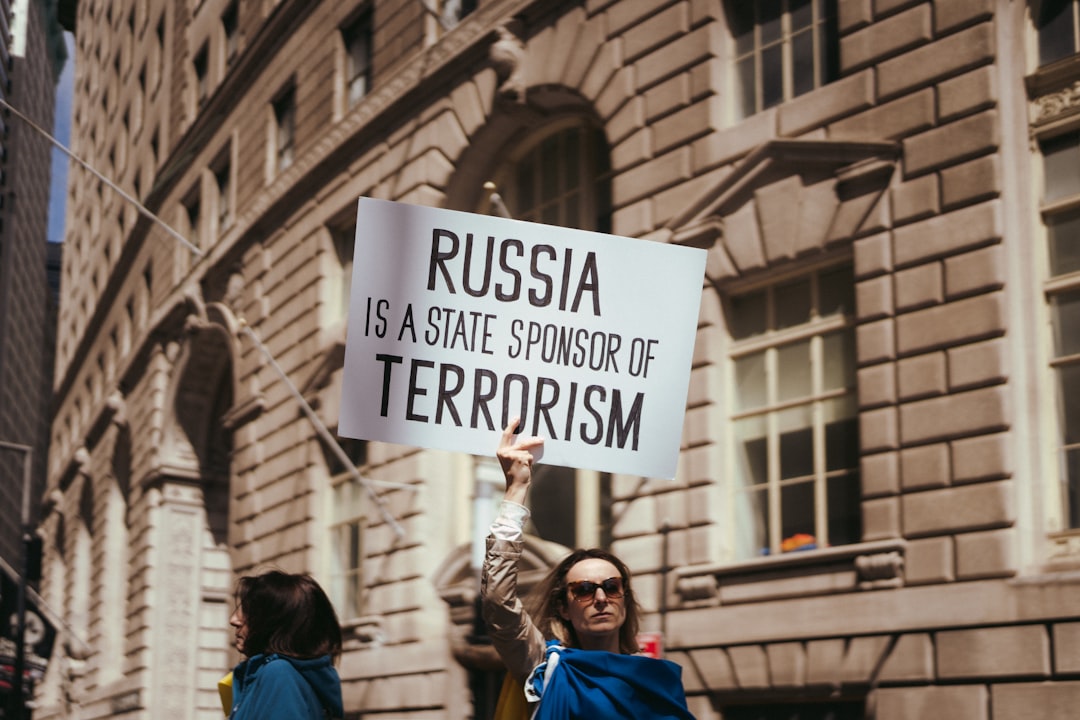The roots of conspiracy mentality can be traced back through history, revealing a complex interplay of social, political, and psychological factors. You may find it fascinating that conspiracy theories have existed for centuries, often emerging during times of social upheaval or uncertainty. For instance, during the tumultuous periods of the French Revolution or the Cold War, people sought explanations for the chaos around them, leading to the proliferation of various conspiracy theories.
These narratives often provided a sense of control and understanding in a world that felt unpredictable and threatening. As you delve deeper into the origins of conspiracy mentality, you might notice that certain historical events have acted as catalysts for these beliefs. The assassination of prominent figures, such as President John F.
Kennedy or civil rights leader Martin Luther King Jr., sparked widespread speculation and distrust in official narratives. Such events not only fueled conspiracy theories but also highlighted a broader societal tendency to question authority and seek alternative explanations. This inclination to doubt official accounts can be seen as a natural human response to fear and uncertainty, prompting individuals to search for hidden truths behind complex events.
Key Takeaways
- Conspiracy mentality has its origins in human psychology, including the need for control, uncertainty, and the desire to make sense of complex events.
- Understanding the psychology behind conspiracy beliefs involves recognizing the role of cognitive biases, such as pattern-seeking and the illusion of control, in shaping individuals’ perceptions of the world.
- Social media plays a significant role in fueling conspiracy theories by creating echo chambers, promoting misinformation, and providing a platform for like-minded individuals to validate each other’s beliefs.
- Debunking common conspiracy theories requires providing evidence, addressing underlying fears and anxieties, and promoting critical thinking skills to help individuals evaluate information critically.
- Conspiracy mentality can have a significant impact on society, leading to decreased trust in institutions, polarization, and even violence in extreme cases. Addressing and challenging conspiracy beliefs requires a multi-faceted approach, including education, media literacy, and promoting critical thinking skills.
Understanding the Psychology Behind Conspiracy Beliefs
To comprehend why some individuals gravitate toward conspiracy beliefs, it is essential to explore the psychological underpinnings that drive this mentality. You may find it intriguing that feelings of powerlessness and anxiety often play a significant role in fostering conspiracy thinking. When faced with overwhelming circumstances or societal changes, individuals may turn to conspiracy theories as a coping mechanism, providing them with a sense of agency and control over their lives.
This psychological refuge can be particularly appealing in times of crisis, where the unknown can feel daunting.
People are naturally inclined to seek patterns and connections in their environment, a tendency that can lead to the formation of unfounded beliefs.
When you encounter information that aligns with your preexisting views, it reinforces your beliefs and creates a feedback loop that makes it challenging to accept contradictory evidence. This cognitive dissonance can further entrench individuals in their conspiracy beliefs, making it difficult for them to engage with alternative perspectives.
The Role of Social Media in Fueling Conspiracy Theories

In today’s digital age, social media has emerged as a powerful tool for disseminating information, including conspiracy theories. You may have noticed how platforms like Facebook, Twitter, and YouTube have become breeding grounds for the rapid spread of misinformation. The algorithms that govern these platforms often prioritize sensational content, which can amplify conspiracy theories and make them more visible to users.
As you scroll through your feed, you might encounter posts that challenge mainstream narratives, leading you to question the validity of established facts. The viral nature of social media also plays a crucial role in shaping public perception. When you see a conspiracy theory shared by friends or influencers you trust, it can lend credibility to the idea, making it more likely that you will accept it without critical examination.
This phenomenon is exacerbated by echo chambers, where individuals are exposed primarily to viewpoints that align with their own. As you engage with these online communities, you may find yourself increasingly isolated from opposing perspectives, reinforcing your belief in conspiracy theories and further entrenching your worldview.
Debunking Common Conspiracy Theories
| Conspiracy Theory | Debunking Evidence |
|---|---|
| Moon Landing Hoax | Photographic evidence, moon rock samples, and testimonies from astronauts and scientists. |
| 9/11 Controlled Demolition | Expert analysis of the collapse, eyewitness accounts, and the lack of evidence for controlled demolition. |
| Chemtrails | Scientific studies on contrails, aviation regulations, and lack of credible evidence for chemtrail spraying. |
| Vaccines Cause Autism | Multiple large-scale studies, scientific consensus, and retraction of the original study linking vaccines to autism. |
As you navigate the landscape of conspiracy theories, it is essential to recognize some of the most prevalent ones and understand how they can be debunked. For instance, the belief that vaccines cause autism has gained traction over the years despite overwhelming scientific evidence disproving this claim. You may find it helpful to familiarize yourself with credible sources that provide clear explanations of vaccine safety and efficacy.
Engaging with this information can empower you to challenge misinformation when you encounter it in conversations or online discussions. Another common conspiracy theory revolves around the idea that the moon landing was staged. This belief often stems from a distrust of government institutions and a desire for alternative explanations.
To debunk this theory effectively, you can explore the extensive documentation and evidence supporting the moon landing, including photographs, videos, and testimonies from astronauts who participated in the mission. By arming yourself with facts and engaging in respectful dialogue with those who hold these beliefs, you can contribute to a more informed discourse surrounding conspiracy theories.
The Impact of Conspiracy Mentality on Society
The prevalence of conspiracy mentality can have far-reaching consequences for society as a whole. You may observe that when large segments of the population embrace conspiracy theories, it can lead to a breakdown in trust among individuals and institutions. This erosion of trust can hinder effective communication and collaboration within communities, making it challenging to address pressing social issues such as public health crises or political polarization.
Moreover, conspiracy beliefs can foster division and hostility among different groups. When individuals perceive others as being complicit in a grand scheme or cover-up, it can create an “us versus them” mentality that undermines social cohesion. As you reflect on this impact, consider how promoting understanding and empathy can help bridge divides and counteract the negative effects of conspiracy mentality on society.
Strategies for Addressing and Challenging Conspiracy Beliefs

Addressing conspiracy beliefs requires a thoughtful approach that prioritizes empathy and understanding. You might find it beneficial to engage in active listening when discussing these topics with others. By allowing individuals to express their concerns and fears without judgment, you create an environment conducive to open dialogue.
This approach can help build rapport and trust, making it more likely that they will be receptive to alternative viewpoints. Additionally, providing clear and accessible information is crucial in challenging conspiracy beliefs. You may consider sharing resources from reputable organizations or experts that address specific claims directly.
By presenting evidence in a non-confrontational manner, you can encourage critical thinking and promote a more nuanced understanding of complex issues. Remember that changing someone’s beliefs takes time; patience and persistence are key components in fostering constructive conversations.
The Link Between Conspiracy Mentality and Distrust in Institutions
A significant factor contributing to conspiracy mentality is the pervasive distrust in institutions that many individuals experience today. You may have noticed how scandals, corruption, and perceived incompetence within governments, media organizations, and other institutions have eroded public confidence. This skepticism can lead people to seek alternative explanations for events rather than accepting official narratives at face value.
As you explore this link further, consider how historical events have shaped public perceptions of institutions. For example, revelations about government surveillance programs or corporate malfeasance can fuel suspicions about transparency and accountability. Understanding this context can help you appreciate why some individuals gravitate toward conspiracy theories as they search for answers in an increasingly complex world.
The Influence of Confirmation Bias on Conspiracy Beliefs
Confirmation bias plays a pivotal role in shaping conspiracy beliefs by reinforcing existing views while dismissing contradictory evidence. You may find it interesting how this cognitive bias operates: when you encounter information that aligns with your beliefs, it feels validating; conversely, when faced with evidence that challenges your views, it may be met with skepticism or outright rejection. This tendency can create an echo chamber effect where individuals become increasingly entrenched in their beliefs.
To counteract confirmation bias in yourself or others, consider actively seeking out diverse perspectives and engaging with information that challenges your views. By exposing yourself to differing opinions and evidence-based arguments, you can cultivate a more balanced understanding of complex issues. Encouraging others to do the same can foster critical thinking skills and promote healthier discourse around contentious topics.
The Intersection of Conspiracy Mentality and Political Ideology
Conspiracy mentality often intersects with political ideology, influencing how individuals interpret events and information through their ideological lens. You may notice that certain conspiracy theories resonate more strongly within specific political groups or movements. For instance, during election cycles or periods of political unrest, conspiracy theories may emerge as tools for delegitimizing opponents or rallying support among like-minded individuals.
As you reflect on this intersection, consider how political polarization can exacerbate conspiracy thinking. When individuals identify strongly with a particular ideology, they may be more susceptible to accepting unfounded claims that align with their beliefs while dismissing evidence that contradicts them. Understanding this dynamic can help you navigate discussions about conspiracy theories within political contexts more effectively.
The Ethics of Conspiracy Theory Promotion
The promotion of conspiracy theories raises important ethical questions about responsibility and accountability in communication. You might find it concerning how some individuals or organizations deliberately spread misinformation for personal gain or political advantage. This manipulation not only undermines public trust but also poses real-world consequences for individuals who may act on false beliefs.
As you consider the ethical implications of promoting conspiracy theories, think about the role of media literacy in combating misinformation. Encouraging critical thinking skills and fostering an understanding of how information is produced and disseminated can empower individuals to discern credible sources from unreliable ones. By advocating for ethical communication practices, you contribute to a more informed society capable of resisting the allure of conspiracy thinking.
Moving Beyond Conspiracy Mentality: Promoting Critical Thinking and Skepticism
Ultimately, moving beyond conspiracy mentality requires a collective effort to promote critical thinking and skepticism as essential skills for navigating an increasingly complex world. You may find it valuable to engage in discussions about media literacy and critical analysis within your community or social circles. By encouraging others to question sources of information and seek evidence-based conclusions, you contribute to a culture that values inquiry over blind acceptance.
Additionally, fostering open dialogue about difficult topics can help dismantle barriers between differing viewpoints. As you engage with others who hold contrasting beliefs, approach conversations with curiosity rather than confrontation. By modeling critical thinking skills yourself and encouraging others to do the same, you play an active role in creating an environment where skepticism is embraced as a tool for understanding rather than division.
In conclusion, addressing conspiracy mentality requires a multifaceted approach that encompasses psychological insights, social dynamics, and ethical considerations. By promoting critical thinking skills and fostering open dialogue within your community, you contribute to a more informed society capable of resisting the allure of unfounded beliefs while navigating an increasingly complex world together.
In exploring the intriguing topic of conspiracy mentality, it’s essential to consider various perspectives and related discussions that delve into the psychological and social factors influencing such beliefs. An insightful article that complements this topic can be found on Hey Did You Know This, which provides a broader context on how conspiracy theories can shape public perception and behavior. For a deeper understanding, you can read more about these dynamics by visiting this related article. This resource offers valuable insights into the complexities of conspiracy mentality and its impact on society.
WATCH THIS! Don’t Believe Everything You Think — Your Brain Is A Master Trickster!
FAQs
What is conspiracy mentality?
Conspiracy mentality refers to the tendency of individuals to believe in and endorse conspiracy theories, which are explanations for events or situations that involve secret plots by powerful groups or individuals.
What are some common characteristics of conspiracy mentality?
Some common characteristics of conspiracy mentality include distrust of authority, belief in the existence of hidden agendas, and a tendency to see patterns and connections where none may exist.
What are some examples of conspiracy theories associated with conspiracy mentality?
Examples of conspiracy theories associated with conspiracy mentality include beliefs in government cover-ups, secret societies controlling world events, and the idea that major historical events were orchestrated by powerful groups.
What are the potential consequences of conspiracy mentality?
Conspiracy mentality can lead to decreased trust in institutions, increased polarization, and a reluctance to accept evidence-based explanations for events. It can also contribute to the spread of misinformation and distrust in public health measures.
How can individuals address conspiracy mentality?
Addressing conspiracy mentality may involve promoting critical thinking skills, encouraging skepticism, and providing accurate information to counteract false beliefs. Building trust in institutions and fostering open dialogue can also help address conspiracy mentality.
